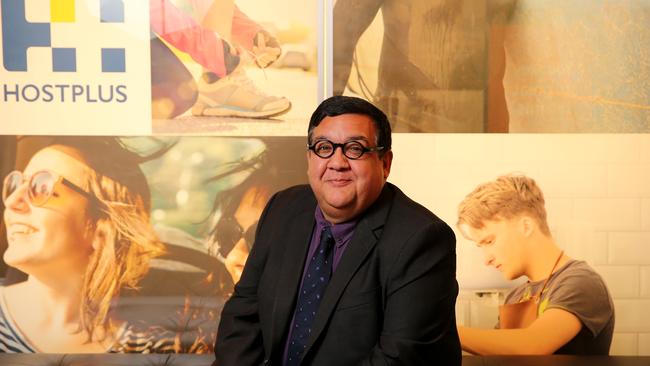Hostplus: ‘Borrow and invest with your ears pinned back’
The chief investment officer of one of the country’s largest super funds sees no headwinds in equity markets.

The chief investment officer of one of the country’s largest super funds sees no headwinds in equity markets and is calling on Australian businesses to take advantage of low rates and borrow to invest “with their ears pinned back”.
Sam Sicilia, who heads the investment team at the $45bn super fund Hostplus, expects markets to be more volatile but says it’s part of “a new normal” that businesses and investors need to accept.
“I’m not trying to be controversial for the sake of it, but I don’t see any headwinds — none,” Mr Sicilia said.
“Now that doesn’t mean we won't get market volatility. We will. The market will drop again and again. But that is now normal. The real question is, what is the alternative?
“If interest rates stay low then no one is going to deposit money in the bank to get a yield. And nobody will invest in bonds.
“So there’s no alternative for mums and dads but to stick money into equity markets, because they can’t tolerate the illiquidity of unlisted assets.
“And institutional investors won’t invest in term deposits or bonds either, not unless they have to, by their charter, in which case the only thing I would say to them is, ‘I’m sorry to hear that’.”
Mr Sicilia said interest rates would remain low because technology had effectively killed inflation.
“The only way to generate inflation is to stop technology. Good luck with that. You’re not going to get inflation and therefore you shouldn’t get interest rate rises.”
Mr Sicilia’s comments come as Australian shares scale all-time highs, with the benchmark S&P/ASX 200 index last week surging to a record high close of 6929 points.
The surge in equity markets around the globe has led to some experts calling for caution and warning that the end of the bull run is near. But Mr Sicilia dismissed such concerns.
“Every year since the global financial crisis, we have read, and we have heard, that returns next year are not going to be great. And for 10 years they’ve been wrong.
“(Stock) prices are sky high, company valuations are sky high without increased earnings. This tells you that people are prepared to pay for whatever dividend stream they can get. It’s a search for yield.
“There will be a correction and we will get volatility, but very quickly people will realise there’s no alternative.
“It’s going to be normal now to get 10 per cent drops every now and again. And I don’t mean every three or four years, I mean multiple times per annum. But that doesn’t mean the end is coming.”
With interest rates at record lows around the globe, Mr Sicilia questioned why businesses weren’t borrowing to invest.
“Too many people are waiting for the world to go back to normal, for the old economic rules to kick back in. It’s not going to happen.
“Borrow and invest with your ears pinned back. Unless, of course, you can’t think of anything to do with 1 per cent money.”
Mr Sicilia said diversification was still the best game going for institutional investors and he flagged the prospect of governments and super funds coming together to get infrastructure projects off the ground.
“What if a group of super funds were to get together and go to the state government or to the federal government and say the following: What are your infrastructure build priorities? We will build it for you. And we will provide both the debt and the equity. Your government does not need to put in one cent.
“In return for that, we want you to free up some red tape. Nothing untoward, make it public, but we don’t want to do a two-year feasibility study and incur those costs while you decide whether the building might cast a shadow or whatever.”
Mr Sicilia said he had floated the idea with government.
“What they find attractive, of course, is it doesn’t affect their surplus. What they find unattractive is the probity around it. But we’re not after anything that violates probity. Make it public, take out a full page ad in The Australian. Just make it happen. It can’t be a two-year process. If you want to stimulate the economy, it’s got to be tomorrow, not in two years’ time.”


